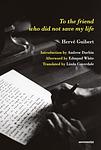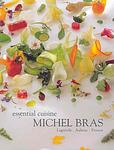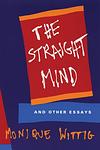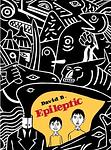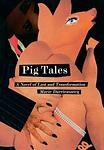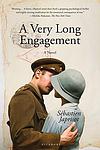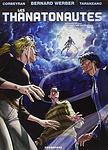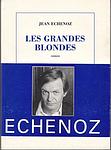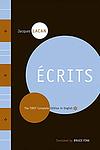The Greatest French Books Since 1990
Click to learn how this list is calculated.
This list represents a comprehensive and trusted collection of the greatest books. Developed through a specialized algorithm, it brings together 289 'best of' book lists to form a definitive guide to the world's most acclaimed books. For those interested in how these books are chosen, additional details can be found on the rankings page.
Genres
Countries
Date Range
Reading Statistics
Click the button below to see how many of these books you've read!
Download
If you're interested in downloading this list as a CSV file for use in a spreadsheet application, you can easily do so by clicking the button below. Please note that to ensure a manageable file size and faster download, the CSV will include details for only the first 500 books.
Download-
1. The Elementary Particles by Michel Houellebecq
"The Elementary Particles" is a provocative novel that explores the lives of two half-brothers, one a molecular biologist and the other a disenchanted teacher, against the backdrop of late 20th-century France. The narrative delves into their personal struggles and emotional turmoil, resulting from their dysfunctional upbringing by a self-absorbed, hedonistic mother. Throughout the novel, the author uses their stories to critique contemporary society, touching on themes such as sexual liberation, consumerism, and the decline of traditional values. The book also delves into the implications of scientific advancements, particularly in the field of molecular biology.
-
2. Platform by Michel Houellebecq
"Platform" is a provocative novel that explores the intersections of sex, business, and terrorism. The protagonist, a middle-aged man working in the French Ministry of Culture, embarks on a journey to Thailand after the death of his father. While there, he falls in love with a travel executive and they start a business capitalizing on sex tourism. However, their venture is violently disrupted by an extremist group, leading to tragic consequences. The novel is a critique of Western consumerism and a commentary on the clash between Western and Islamic cultures.
-
3. Suite Française by Irène Némirovsky
"Suite Française" is a two-part novel set during the early years of World War II in France. The first part, "Storm in June," follows a group of Parisians as they flee the Nazi invasion. The second part, "Dolce," shows life in a small French village under German occupation. The novel explores themes of love, loss, and survival, and provides a unique perspective on life in France during the war. The book was written during the war but was not discovered and published until many years later.
-
4. The First Man by Albert Camus
"The First Man" is a semi-autobiographical novel that explores the life of a man named Jacques Cormery, who grows up in poverty in Algeria, loses his father at a young age, and struggles with his relationship with his illiterate mother. The narrative delves into themes of identity, memory, and the human condition, as Jacques attempts to understand his past and his father's life, while simultaneously grappling with the harsh realities of colonial Algeria. Despite the challenges, Jacques remains determined to rise above his circumstances through education and personal growth.
-
5. To The Friend Who Did Not Save My Life by Hervé Guibert
The book is a candid and harrowing autobiographical novel that chronicles the life of a man grappling with the devastating impact of AIDS during the early years of the epidemic. Through a blend of fact and fiction, the narrative delves into the protagonist's personal experiences with illness, the medical establishment, and the emotional complexities of friendship and mortality. As he confronts his own declining health, the protagonist reflects on the relationships with those around him, including a close friend who is also facing the disease, and the betrayal he feels when a promised miracle cure fails to materialize. The novel is a raw and poignant exploration of the human condition in the face of an unforgiving illness.
-
6. Whatever by Michel Houellebecq
"Whatever" is a satirical novel that explores the life of a depressed and disillusioned computer programmer working for a software company in Paris. The protagonist's life is characterized by his cynicism and indifference towards his job, his failed relationships, and society at large. His only relief comes from his philosophical musings about life and the human condition. The novel is a bleak critique of modern society and the isolation and alienation brought about by technology and capitalism.
-
7. Essential Cuisine by Michel Bras
"Essential Cuisine" is a comprehensive guide to gourmet cooking, written by a renowned French chef. The book provides readers with recipes that highlight the chef's innovative and unique approach to cooking, focusing on the use of fresh, local ingredients. The book also includes stunning photography of the dishes and the chef's home region, making it as much a visual feast as a culinary one. It is a must-have for anyone interested in haute cuisine and the art of fine dining.
-
8. The Straight Mind by Monique Wittig
The book is a collection of feminist essays that challenge the conventional understanding of gender and sexuality, positing that the concept of "woman" is a social construct created by a heterosexual society to uphold a binary gender system. The author argues that this system perpetuates the oppression of women and LGBTQ+ individuals by reinforcing the straight mind, a heteronormative way of thinking that marginalizes any form of difference. Through a radical rethinking of language, literature, and social structures, the essays advocate for a new feminist perspective that seeks to dismantle the straight mind and create a society where all forms of identity and expression are valued equally.
-
9. The Elegance of the Hedgehog by Muriel Barbery
The novel is a profound contemplation of life as seen through the eyes of two female protagonists: a 54-year-old concierge and a precocious 12-year-old girl, both living in the same upscale Parisian apartment building. The concierge, who conceals her intelligence and passion for literature and philosophy from the wealthy tenants, and the girl, who plans to commit suicide on her 13th birthday due to her disillusionment with the world, form an unlikely friendship. Their lives are forever changed when a wealthy Japanese man moves into the building.
-
10. Three by Georges Perec
This book is a unique exploration of human experience and memory, weaving together three distinct narratives that delve into the intricacies of loss, identity, and the passage of time. Through a meticulous and innovative use of language, the author crafts a multifaceted examination of life's fleeting moments and the ways in which they are remembered and forgotten. The narratives, though seemingly disparate, converge in their shared themes of absence and the search for meaning within the mundane, challenging readers to reflect on the nature of existence and the connections that bind the past to the present.
-
11. Epileptic by David B
This graphic novel is a poignant and visually striking autobiography that delves into the author's childhood and early adulthood, focusing on the profound impact of his brother's severe epilepsy on their family. The narrative explores the family's relentless quest for a cure, spanning from traditional medicine to more esoteric and spiritual healers, against the backdrop of the author's developing passion for drawing. The artwork, characterized by its intricate and symbolic style, powerfully conveys the emotional turmoil, isolation, and the struggle with identity and family dynamics that the author experiences. This work is not only a personal story of living with a sibling's chronic illness but also a reflection on the nature of illness, the quest for healing, and the resilience of family bonds.
-
12. Pig Tales by Marie Darrieussecq
This novel is a satirical and dystopian narrative that follows the life of a woman who gradually transforms into a pig. Through her metamorphosis, the story delves into themes of identity, societal decay, and the objectification of women. Set against a backdrop of a corrupt and perverse society, the protagonist's journey from human to pig serves as a critical commentary on the dehumanizing aspects of contemporary life and the commodification of bodies. The narrative's dark humor and surreal elements underscore the absurdity of the protagonist's changing reality, offering a poignant critique of modern societal norms and the loss of personal agency within oppressive systems.
-
13. Riwan, Ou Le Chemin De Sable by Ken Bugul
"Riwan, Ou Le Chemin De Sable" by "Ken Bugul" is a compelling novel that follows the life of Riwan, a young woman who embarks on a journey of self-discovery. Set in Senegal, the book delves into themes of identity, cultural clashes, and the challenges faced by African women in a patriarchal society. Through Riwan's personal experiences and encounters with different people, the novel explores the complexities of love, desire, and the pursuit of happiness. It is a poignant and thought-provoking story that offers a unique perspective on African society and the resilience of its people.
-
14. Out Of The Dark by Patrick Modiano
In "Out of the Dark," the narrative unfolds around a man's introspective journey into his past, where he reflects on a transient and intense romance with a mysterious woman named Jacqueline. The story is set against the backdrop of post-war Paris, a city that mirrors the protagonist's feelings of dislocation and search for identity. As he revisits old haunts and recalls the enigmatic figures from his youth, the man grapples with the ephemeral nature of memory and the elusive quest for a sense of belonging. The novel weaves a haunting tale of love, loss, and the shadows that linger long after the people and moments have vanished into the dark recesses of time.
-
15. Empire Of The Ants by Bernard Werber
In this novel, readers are plunged into a fascinating and complex world beneath their feet, where an ant civilization thrives with its own sophisticated society, technology, and culture. The story intertwines the lives of these ants with the human world, particularly through the experiences of a family that inherits a mysterious apartment in Paris, which hides secrets linked to the ant empire. As the narrative unfolds, the book explores themes of coexistence, the nature of intelligence, and the intricate balance of ecosystems, challenging the reader to consider the world from an entirely different perspective and to question humanity's place within the grand scheme of life.
-
16. A Very Long Engagement by Sebastien Japrisot
The novel is a poignant exploration of love and perseverance set against the backdrop of World War I. It follows a young Frenchwoman who refuses to accept the official story that her fiancé has died on the battlefield. Despite being told he was executed for self-mutilation to escape military service, along with four other condemned soldiers, she embarks on a relentless quest to discover the truth. Her journey reveals a tangled web of deceit, cover-ups, and unexpected alliances, as she holds onto hope that her beloved is still alive. Through her unwavering determination, the narrative delves into the horrors of war and the enduring power of love.
-
17. All The World's Mornings by Pascal Quignard
The book is a historical novel that delves into the life of the 17th-century French composer and violist Monsieur de Sainte Colombe and his relationship with his two daughters, as well as the famous musician Marin Marais. After the death of his wife, Sainte Colombe retreats into his music and his garden, seeking solace and meaning in his solitary existence. His passion for music leads him to reject the court's opulence and the advances of society. The narrative explores themes of artistry, mentorship, and the search for perfection as it follows the complex dynamics between the reclusive Sainte Colombe, his protégé Marais, and the haunting presence of the past that reverberates through their music.
-
18. Capital in the Twenty-First Century by Thomas Piketty
This book provides a comprehensive analysis of the dynamics of capital accumulation and distribution over the last few centuries. The author argues that the rate of capital return in developed countries is persistently greater than the rate of economic growth, leading to high levels of wealth inequality. The book further suggests that the level of income inequality is not primarily a result of differences in individual labor income but rather the result of differences in capital ownership and the income derived from it. The author proposes a global tax on wealth to prevent soaring inequality.
-
19. Le Passeur De Lumière by Bernard Tirtiaux
The novel tells the story of Nivard de Chassepierre, a master glassmaker in the Middle Ages, who embarks on a journey of self-discovery and artistic fulfillment. Tasked with creating a magnificent stained glass window, he faces numerous challenges, including the rigid constraints of his era, the complexities of his craft, and the tumultuous backdrop of social and political unrest. As he pursues his passion for creating light-infused masterpieces, Nivard must navigate the intricacies of human relationships and the pursuit of excellence in his art, all while striving to leave a lasting legacy through the beauty and transcendence of his work.
-
20. Les Thanatonautes by Bernard Werber
The book explores the adventures of a group of pioneering scientists who embark on an experimental journey to map the realm of death, which they term "Thanatonautes." By inducing near-death experiences, they navigate through successive levels of the afterlife, each with its own challenges and landscapes, in an attempt to uncover the secrets of what lies beyond life. Their quest for knowledge pushes the boundaries of science and spirituality, leading to profound insights about the human soul and the mysteries of existence, while also raising ethical and philosophical questions about the consequences of tampering with the unknown.
-
21. Les Racines Du Mal by Maurice G. Dantec
The book is a dark and complex thriller set in the near future, where a series of gruesome murders has gripped Europe. The narrative follows a troubled detective with a cybernetically enhanced brain as he tracks a serial killer whose crimes are linked to a sinister biotechnology corporation. As the investigation deepens, the detective uncovers a web of conspiracy that challenges the boundaries of human nature and technology, leading to a chilling exploration of the roots of evil and the potential horrors of a post-human world.
-
22. Les Grandes Blondes by Jean Echenoz
The novel is a playful and satirical narrative that follows the story of Gloire Abgrall, a famous and enigmatic blonde actress who has disappeared from the public eye. A peculiar and obsessive fan, Jérôme, is hired by a shadowy organization to track her down. As Jérôme embarks on this quest, he encounters a series of bizarre and comedic situations that blur the lines between reality and fiction. The book weaves a tale of celebrity, identity, and the surreal nature of fame, all delivered with a sense of irony and wit characteristic of the author's style.
-
23. Écrits: The First Complete Edition in English by Jacques Lacan
This book is a comprehensive collection of essays by a renowned psychoanalyst, offering readers an in-depth understanding of his theories on human psychology. The author delves into complex topics such as the unconscious, the mirror stage, and the concept of the Other, while also exploring the intersection of psychoanalysis with philosophy, linguistics, and anthropology. The book challenges conventional understanding of subjectivity and identity, making it a seminal work in the field of psychoanalysis.
-
24. The Perfect Nanny by Leïla Slimani
"The Perfect Nanny" by Leïla Slimani is a psychological thriller that explores the relationship between a wealthy Parisian family and their nanny, Louise. The novel begins with the murder of the two children in the family by Louise, who had been their caregiver for several years. The story then delves into the events leading up to the tragic incident, revealing the complex dynamics between the family and Louise. Slimani's novel is a chilling portrayal of the blurred lines between love and obsession, and the dangers that can arise when those lines are crossed.
-
25. Just Like Heaven by Marc Levy
"Just Like Heaven" is a romantic and whimsical tale that follows the life of a successful architect who, after a near-death experience, gains the ability to see and communicate with the spirit of a comatose woman. As he helps her to uncover the events that led to her condition, they form an unlikely bond that transcends the boundaries between life and death. Their growing connection and the quest to save her life take them on a heartwarming journey that challenges the very notions of love, fate, and what it means to be truly alive.
Reading Statistics
Click the button below to see how many of these books you've read!
Download
If you're interested in downloading this list as a CSV file for use in a spreadsheet application, you can easily do so by clicking the button below. Please note that to ensure a manageable file size and faster download, the CSV will include details for only the first 500 books.
Download



